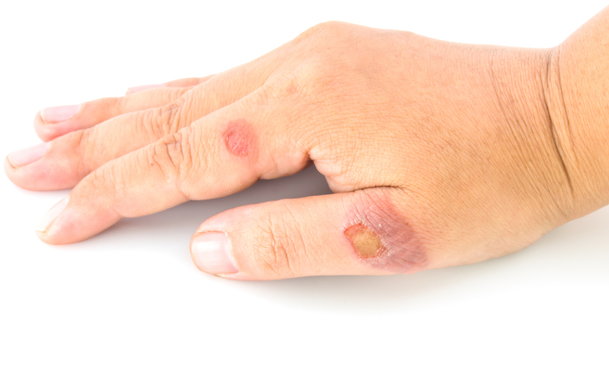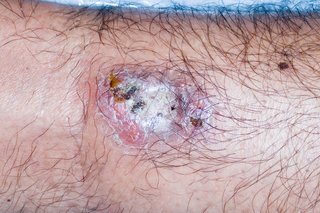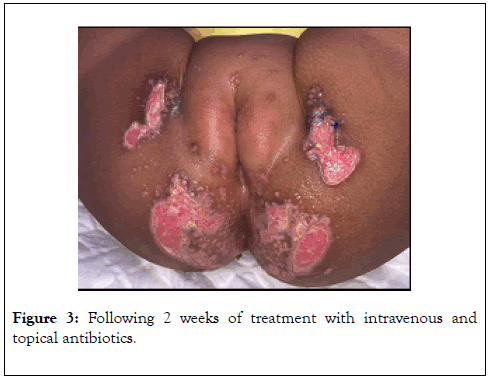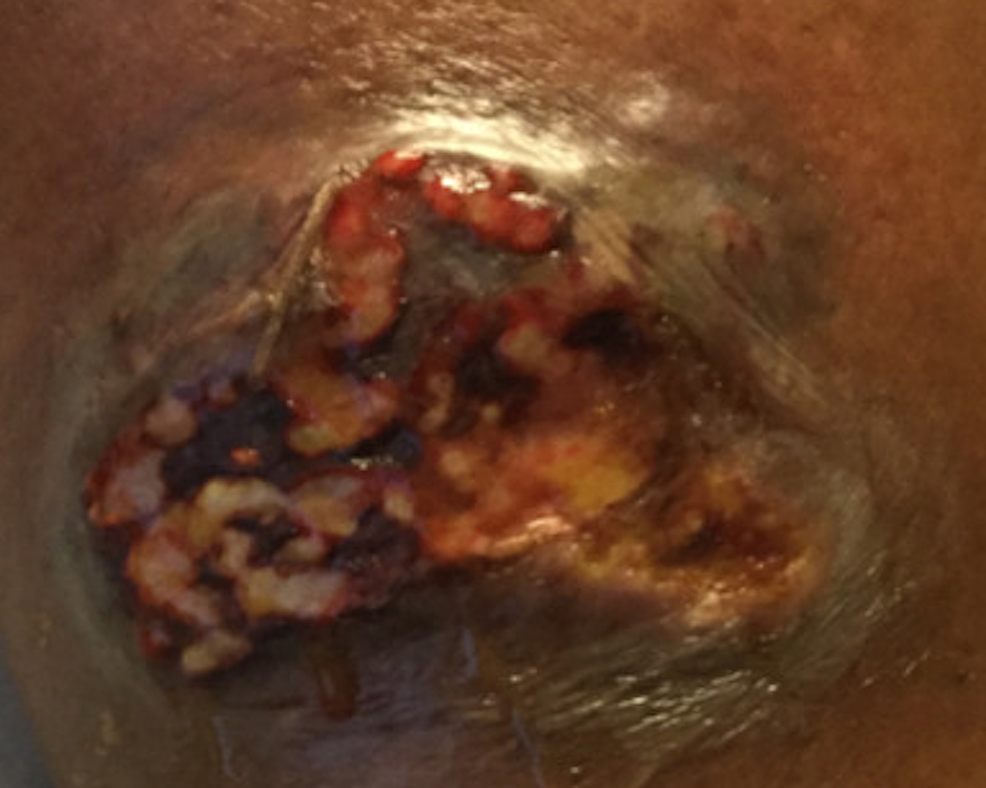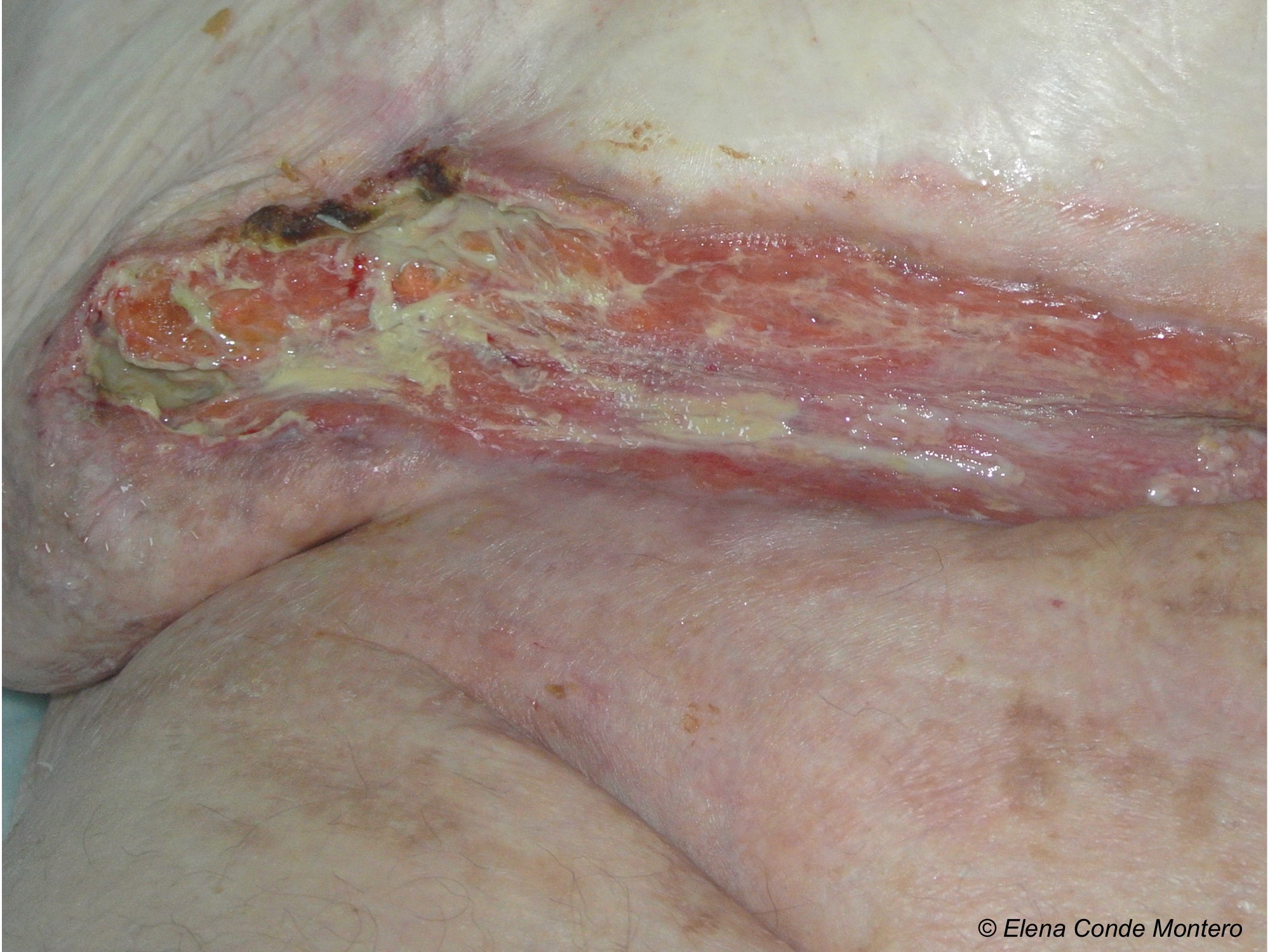Pyderma Gangrenosum
Pyoderma gangrenosum is a rare inflammatory skin disease where painful pustules or nodules become ulcers that progressively grow.

Pyderma gangrenosum. The disease was identified in 1930. Pyoderma gangrenosum pg is an inflammatory skin disorder that is characterized by small red bumps or blisters papules or nodules that eventually erode to form swollen open sores ulcerations. Treatments may include corticosteroids ciclosporin infliximab or canakinumab. If the ulcers on your skin are large and need help with healing your doctor might suggest a skin graft.
Pyoderma gangrenosum is a rare destructive inflammatory skin disease of which a painful nodule or pustule breaks down to form a progressively enlarging ulcer. Pyoderma gangrenosum is a rare disease occurring in approximately one person per 100000 which causes inflammation and ulceration of the skin. Its incidence is usually associated with systemic diseases in approximately 50 percent of patients. The exact causes of pyoderma gangrenosum are unknown but it appears to be a disorder of the immune system.
Trauma to the skin may worsen existing ulcers or trigger new ones. The size and depth of the ulcerations vary greatly and they are often extremely painful. Pyoderma gangrenosum pg is a rare ulcerating skin disease difficult to recognize for both patients and doctors. Pyoderma gangrenosum pie o dur muh gang ruh no sum is a rare condition that causes large painful sores ulcers to develop on your skin most often on your legs.
Pyoderma gangrenosum pie o dur muh gang ruh no sum is a rare condition that causes large painful sores ulcers to develop on your skin most often on your legs. When its misdiagnosed and mistreated it can be even more mentally and physically devastating. Because pyoderma gangrenosum can be made worse by cuts to the skin surgery to remove dead tissue is not usually considered a good treatment option. The exact causes of pyoderma gangrenosum are unknown but it appears to be a disorder of the immune system.
They come from infections diabetes vasculitis and many other triggers.
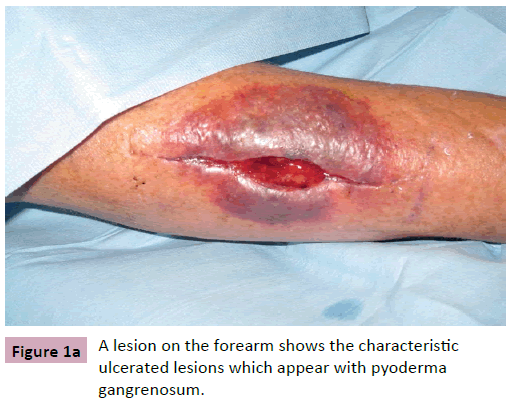



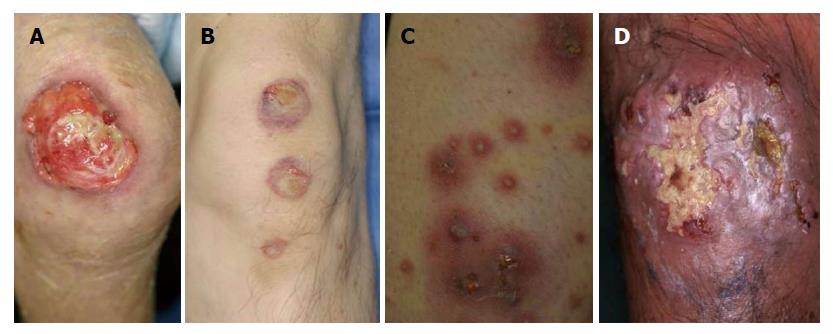



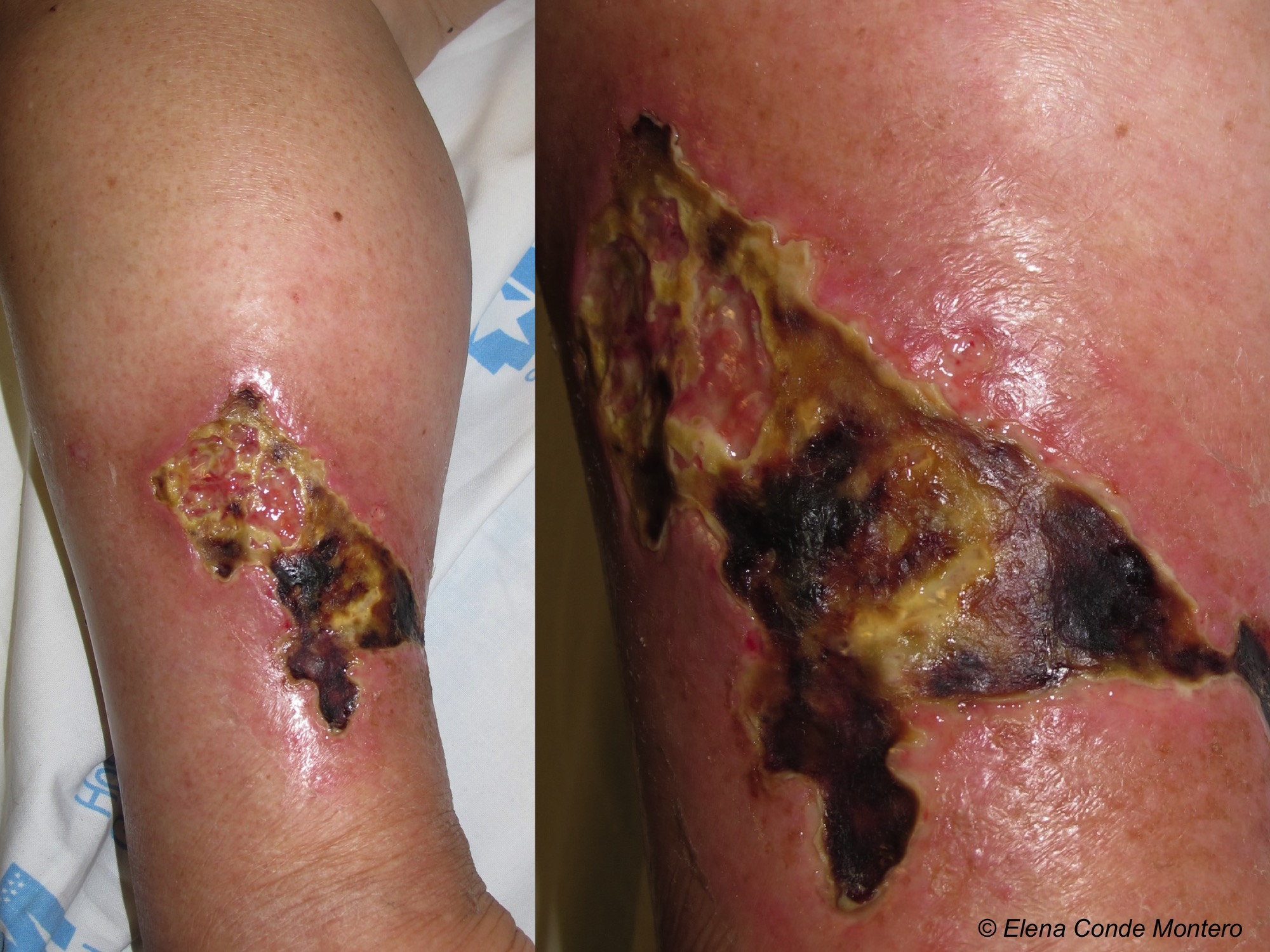

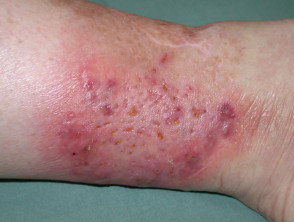







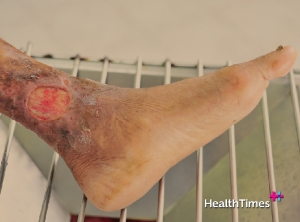
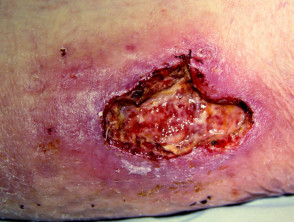






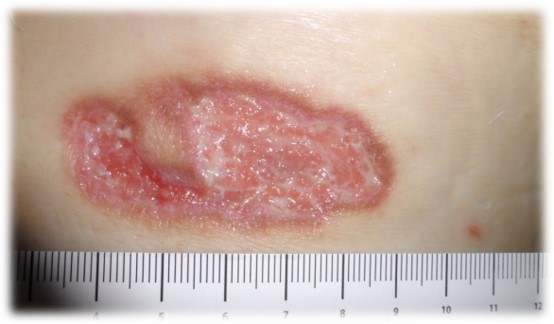
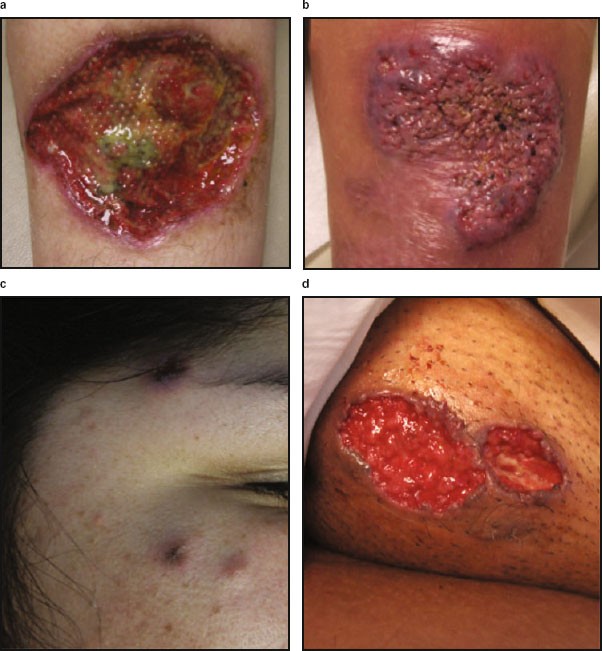
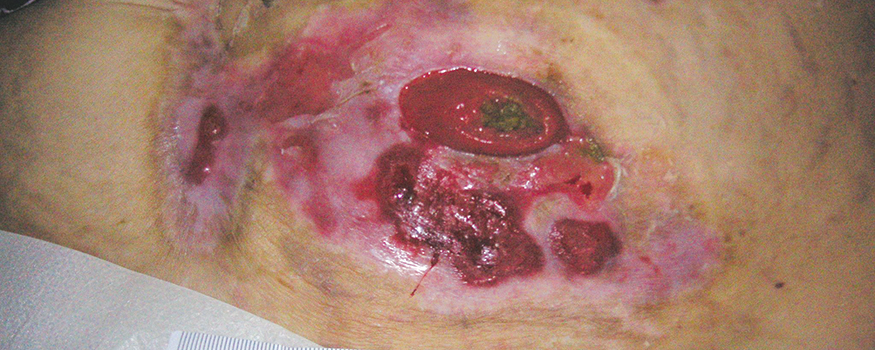

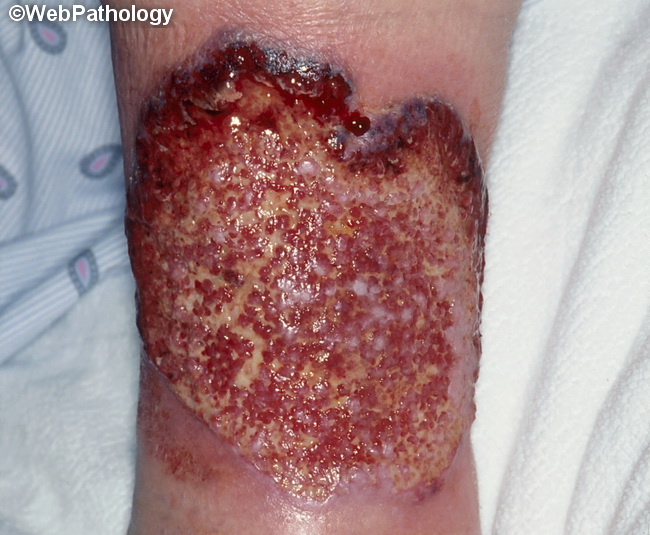
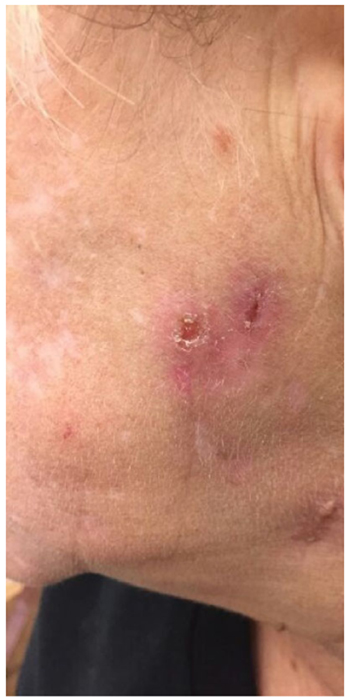



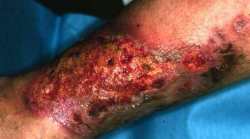


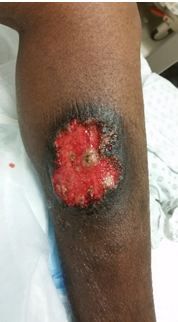
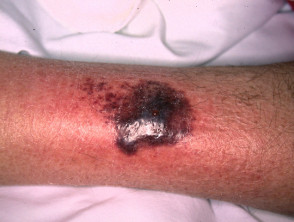





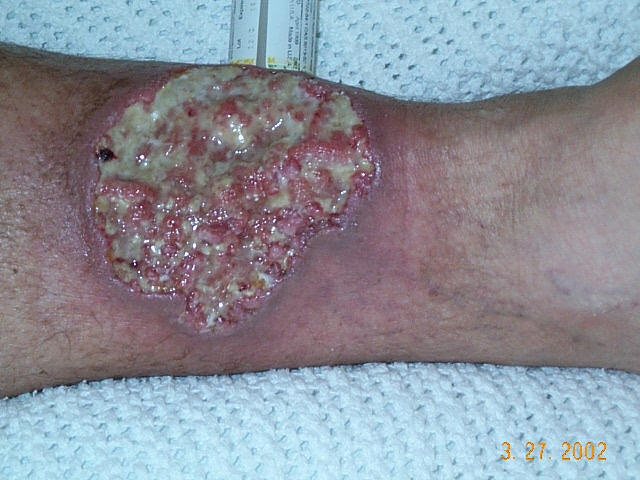
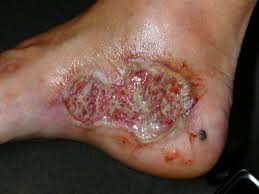
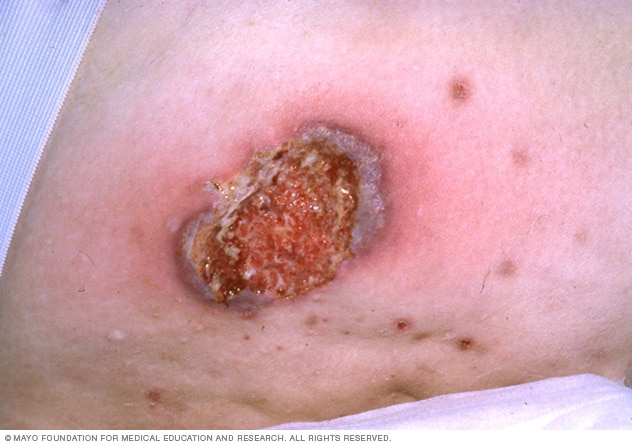

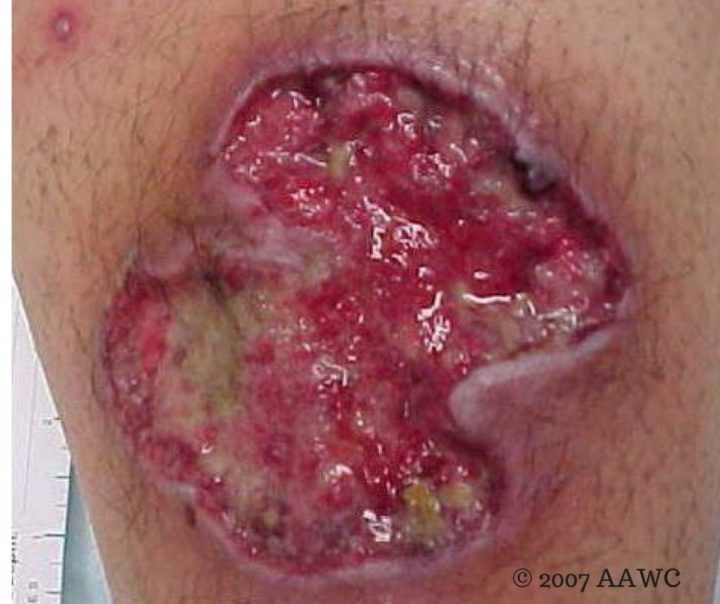

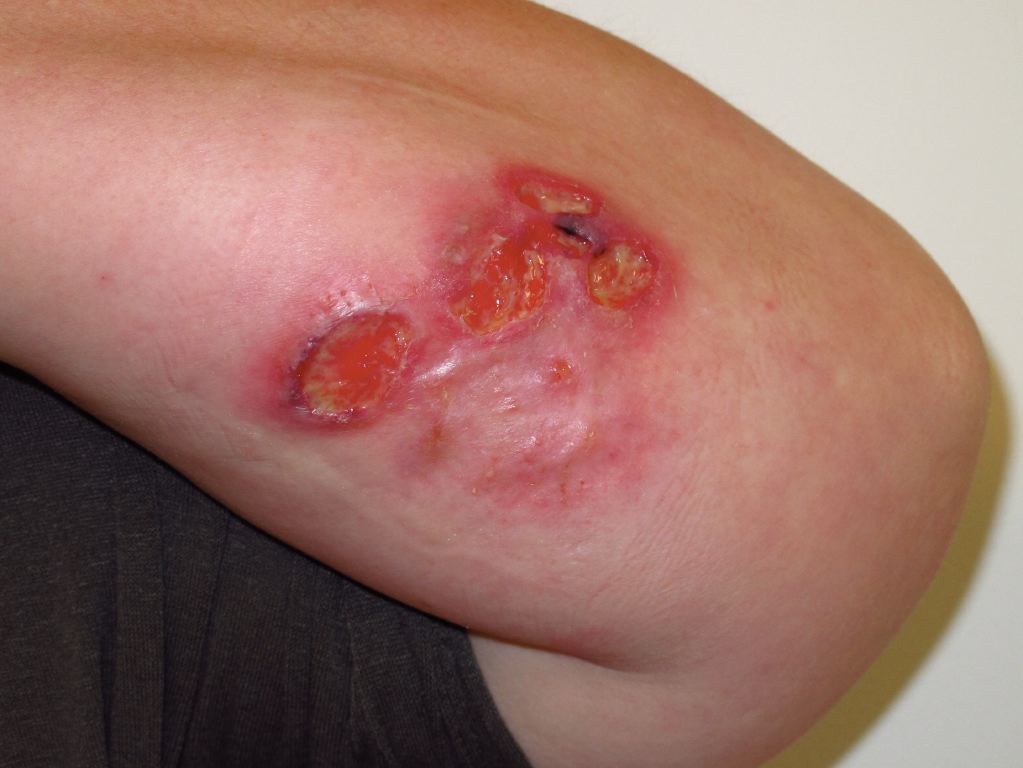







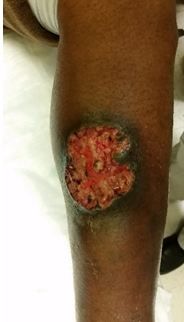




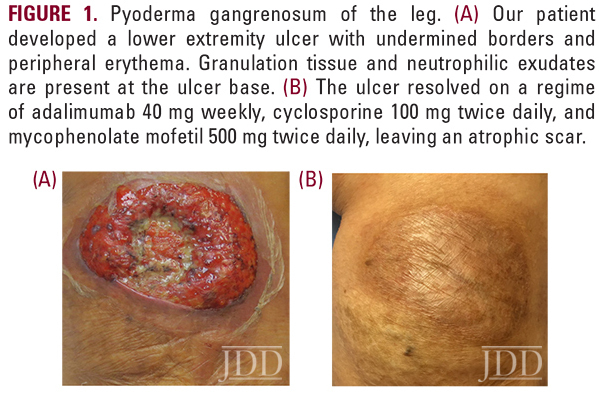

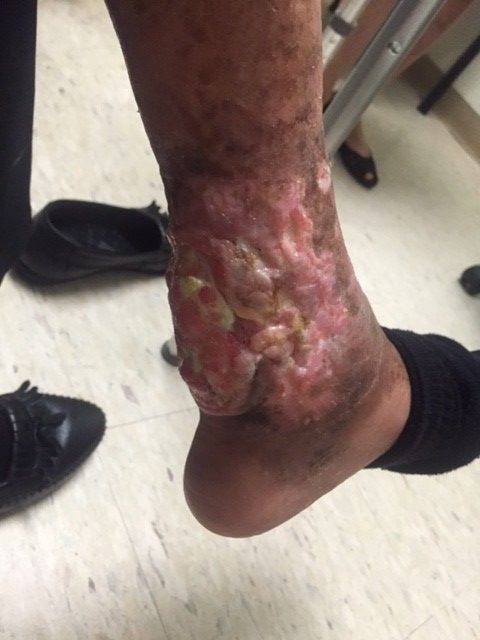
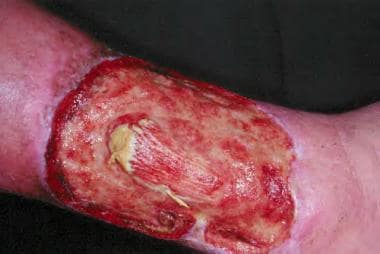

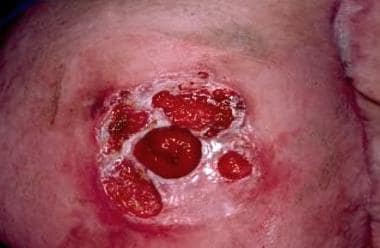

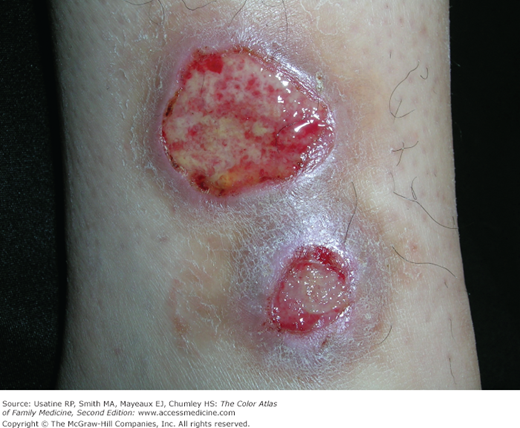

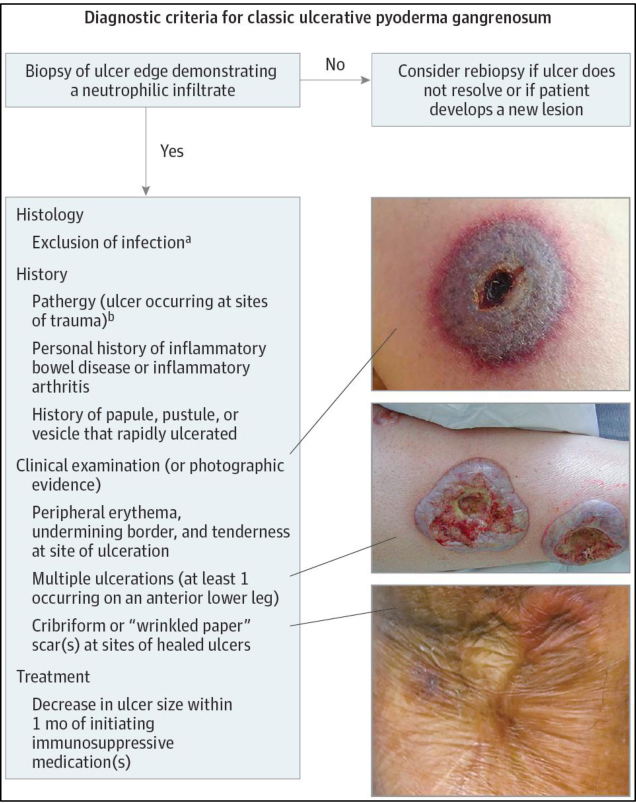
.jpg)
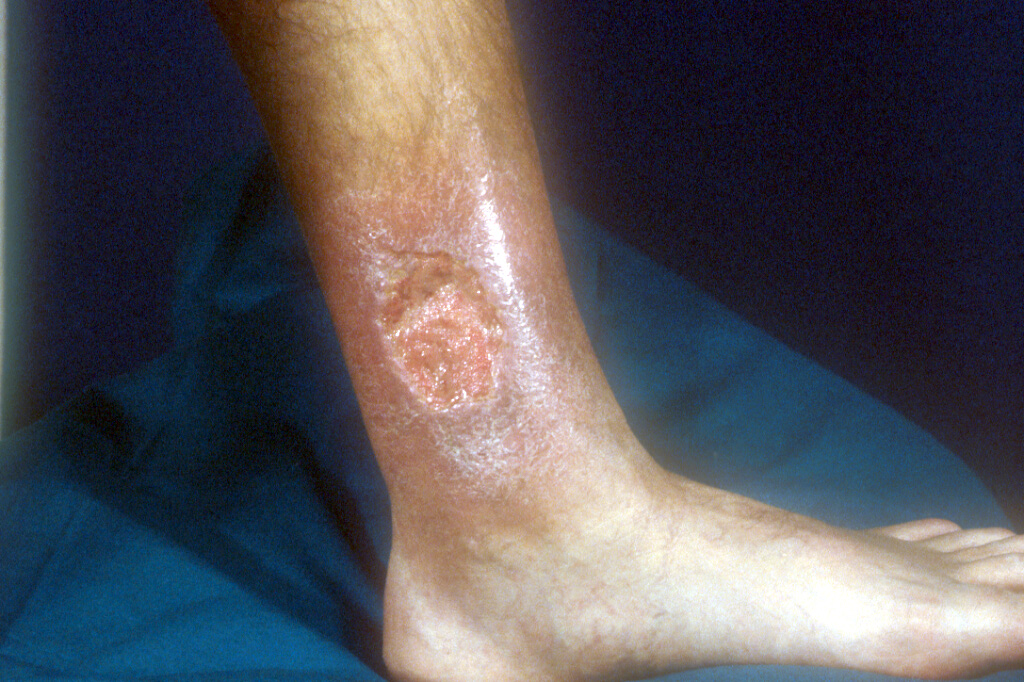


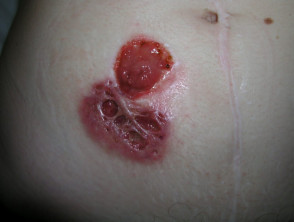



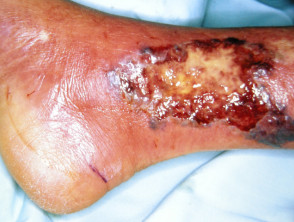




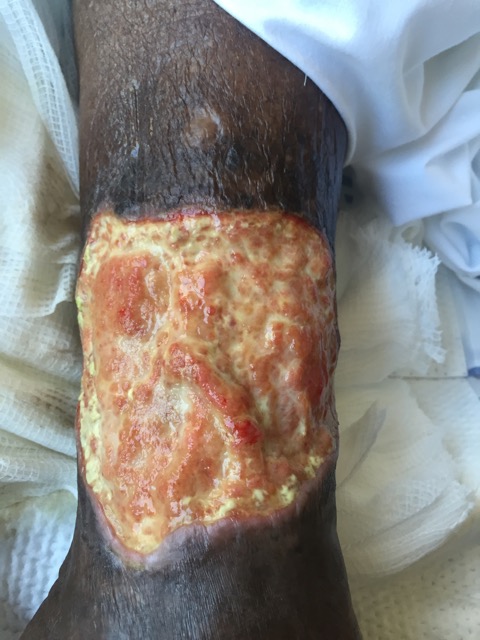
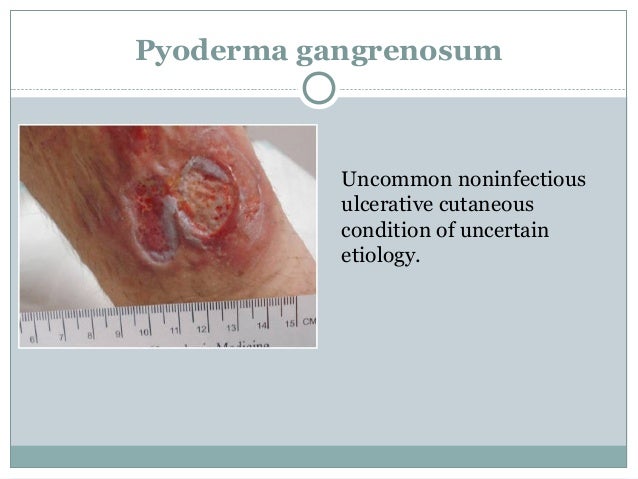
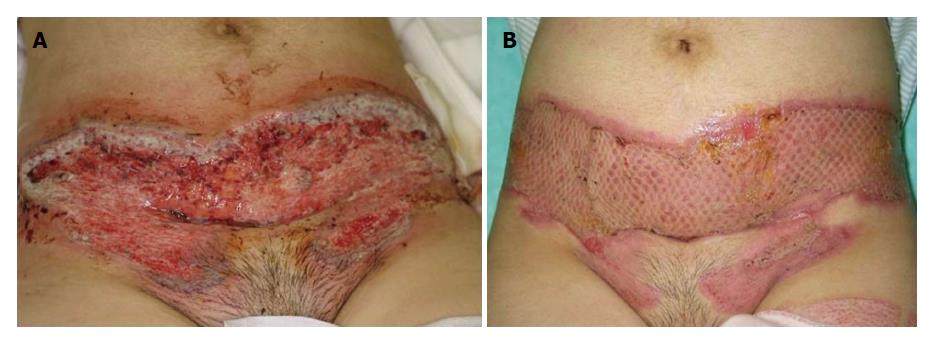
:max_bytes(150000):strip_icc()/pyodgan2-cb9d1b1b10484b529c9ae8447a87abd9.jpg)


